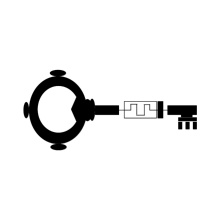Workshop on Nano Security: From Nano-Electronics to Secure Systems (NanoSec’23)
Workshop Scope
Today’s societies critically depend on electronic systems. Security of such systems are facing completely new challenges due to the ongoing transition to radically new types of nano-electronic devices, such as memristors, spintronics, or carbon nanotubes. The use of such emerging nano-technologies is inevitable to address the essential needs related to energy efficiency, computing power and performance. Therefore, the entire industry are switching to emerging nano-electronics alongside scaled CMOS technologies in heterogeneous integrated systems. These technologies come with new properties and also facilitate the development of radically different computer architectures.
The proposed workshop will bring together researchers from hardware-oriented security and from emerging hardware technology. It will explore the potential of new technologies and architectures to provide new opportunities for achieving security targets, but it will also raise questions about their vulnerabilities to new types of hardware-oriented attacks. The workshop is based on a Priority Program https://spp-nanosecurity.uni-stuttgart.de/ funded since 2019 by the German DFG, and will be open to members and non-members of that Priority Program alike.
Technical Program
Session chair: Ilia Polian, University of Stuttgart
Securing the Internet of Bodies using Human Body as a ‘Wire’
Shreyas Sen, Purdue University
Abstract: Radiative communication using electromagnetic (EM) fields is the state-of-the-art for connecting wearable and implantable devices enabling prime applications in the fields of connected healthcare, electroceuticals, neuroscience, augmented and virtual reality (AR/VR) and human-computer interaction (HCI), forming a subset of the Internet of Things called the Internet of body (IoB). However, owing to such radiative nature of the traditional wireless communication, EM signals propagate in all directions, inadvertently allowing an eavesdropper to intercept the information. Moreover, since only a fraction of the energy is picked up by the intended device, and the need for high carrier frequency compared to information content, wireless communication tends to suffer from poor energy-efficiency (>nJ/bit). Noting that all IoB devices share a common medium, i.e., the human body, using the conductivity of the human the body allows low-loss transmission, termed as human body communication (HBC) and improves energy-efficiency. Conventional HBC implementations still suffer from significant radiation compromising physical security and efficiency. Our recent work has developed Electro-Quasistatic Human Body Communication (EQS-HBC), a method for localizing signals within the body using low-frequency transmission, thereby making it extremely difficult for a nearby eavesdropper to intercept critical personal data, thus producing a covert communication channel, i.e., the human body as a ‘wire’ along with reducing interference.
In this talk, I will explore the fundamentals of radio communication around the human body to lead to the evolution of EQS-HBC and show recent advancements in the field which has a strong promise to become the future of Body Area Network (BAN). I will show the theoretical development of the first Bio-Physical Model of EQS-HBC and how it was leveraged to develop the world’s lowest-energy (<10pJ/b) and world’s first sub-uW Physically and Mathematically Secure (AES 256) IoB Communication SoC, with >100x improvement in energy-efficiency over Bluetooth. I’ll also highlight how recent developments in mixed-signal circuit techniques allow orders of magnitude improvement in side-channel attack resistance of the encryption engines in such SoCs. Finally, I will highlight the possibilities and applications in the fields of HCI, Medical Device Communication, and Neuroscience including a video demonstration. I will highlight how such low-power secure communication in combination with in-sensor intelligence is paving the way forward for Secure and Efficient IoB Sensor Nodes.
Bio: Shreyas Sen is an Elmore Associate Professor of ECE & BME, Purdue University and received his Ph.D. degree from ECE, Georgia Tech and the Founder and CTO of Ixana. His current research interests span mixed-signal circuits/systems and electromagnetics for the Internet of Things (IoT), Biomedical, and Security. He has authored/co-authored 3 book chapters, over 175 journal and conference papers and has 25 patents granted/pending. Dr. Sen serves as the founding Director of the Center for Internet of Bodies (C-IoB) at Purdue. Dr. Sen is the inventor of the Electro-Quasistatic Human Body Communication (EQS-HBC), or Body as a Wire technology, for which, he is the recipient of the MIT Technology Review top-10 Indian Inventor Worldwide under 35 (MIT TR35 India) Award in 2018 and the Georgia Tech 40 Under 40 Award in 2022. His work has been covered by 250+ news releases worldwide, IEEE Spectrum feature, invited appearance on TEDx Indianapolis, Indian National Television CNBC TV18 Young Turks Program, NPR subsidiary Lakeshore Public Radio and the CyberWire podcast. Dr. Sen is a recipient of the NSF CAREER Award 2020, AFOSR Young Investigator Award 2016, NSF CISE CRII Award 2017, Intel Outstanding Researcher Award 2020, Google Faculty Research Award 2017, Purdue CoE Early Career Research Award 2021, Intel Labs Quality Award 2012 for industrywide impact on USB-C type, Intel Ph.D. Fellowship 2010, IEEE Microwave Fellowship 2008, GSRC Margarida Jacome Best Research Award 2007, and nine best paper awards including IEEE CICC 2019, 2021 and in IEEE HOST 2017-2020, for four consecutive years. Dr. Sen's work was chosen as one of the top-10 papers in the Hardware Security field (TopPicks 2019). He serves/has served as an Associate Editor for IEEE Solid States Circuits Letters (SSC-L), Nature Scientific Reports, Frontiers in Electronics, IEEE Design & Test, Executive Committee member of IEEE Central Indiana Section and Technical Program Committee member of DAC, CICC, IMS, CCS, DATE, ISLPED, ICCAD, ITC, VLSI Design, among others. Dr. Sen is a Senior Member of IEEE.
Session chair: Nan Du, University of Jena and Leibniz IPHT
Carbon-Nanotube-Based Physical Unclonable Functions and True Random Number Generators
Nikolaos Athanasios Anagnostopoulos1, Tolga Arul1,2, Simon Böttger3, Florian Frank1, Ali Mohamed3, Martin Hartmann3, Sascha Hermann3,4 and Stefan Katzenbeisser1
1University of Passau, 2TU Darmstadt, 3TU Chemnitz, 4Fraunhofer ENAS, Chemnitz
Towards a PVT-Variation Resistant Resistor-Based PUF
Carl Riehm1, Christoph Frisch1, Florin Burcea1, Matthias Hiller2, Michael Pehl1 and Ralf Brederlow1,
1TU Munich 2Fraunhofer AISEC, Garching
Session chair: Ingrid Verbauwhede, KU Leuven
Practical Considerations for Optical Side-Channel Analysis: A Case Study on Reconfigurable FETs
Thilo Krachenfels1, Giulio Galderisi2, Thomas Mikolajick2,3, Jens Trommer2 and Jean-Pierre Seifert1,4
1TU Berlin, 2NaMLab gGmbH, Dresden, 3TU Dresden, 4Fraunhofer SIT, Darmstadt
Side-Channel Leakage Evaluation of Multi-Chip Cryptographic Modules
Kazuki Monta1, Takumi Matsumaru1, Takaaki Okidono2, Takuji Miki1 and Makoto Nagata1
1Kobe U 2SCU Co. Ltd, Tokyo
Session Chair: Shahar Kvatinsky, Technion
PUFMem: Intrinsic Physical Unclonable Functions from Emerging Non-Volatile Memories
Tolga Arul, Stefan Katzenbeisser, Florian Frank, University of Passau
nanoEBeam: E Beam Probing for backside attacks against nanoscale ICs
Frank Altmann, Jörg Jatzkowski, FhG IMWS Halle, Elham Amini, Jean-Pierre Seifert, Christian Boit, Thilo Krachenfels, TU Berlin
STAMPS: From Strain to Trust: tAMper aware silicon PufS
Ralf Brederlow, TU Munich, Matthias Hiller, FhG AISEC
RAINCOAT: Randomization in Secure Nano-Scale Microarchitectures
Christian Niesler1, Jan Thoma2, Lucas Davi1, Tim Güneysu2
1University of Duisburg-Essen, 2Ruhr University Bochum
OptiSecure: Securing Nano-Circuits against Optical Probing
Sajjad Parvin1, Thilo Krachenfels2, Frank Sill Torres3, Jean-Pierre Seifert2,4, Rolf Drechsler1,5
1University of Bremen, 2TU Berlin, 3DLR, Bremerhaven, 4Fraunhofer SIT, Darmstadt, 5DFKI, Bremen
MemCrypto: Towards Secure Electroforming-free Memristive Cryptographic Implementations
Nan Du (University of Jena and Leibniz IPHT), Ilia Polian (University of Stuttgart)
HaSPro: Verifiable Hardware Security for Out-of-Order Processors
Thomas Eisenbarth, University of Lübeck, Wolfgang Kunz, Tobias Jauch TU Kaiserslautern
NANOSEC: Tamper-Evident PUFs based on Nanostructures for Secure and Robust Hardware Security Primitives
Sascha Hermann, TU Chemnitz, Stefan Katzenbeisser, Nikolaos Athanasios Anagnostopoulos University of Passau
SecuReFET: Secure Circuits through inherent Reconfigurable FET
Shubham Rai, Akash Kumar, TU Dresden Giulio Galderisi, Thomas Mikolajick, Jens Trommer, NaMLab gGmbH, Dresden
BioNanoLock: Bio-Nanoelectronic based Logic Locking for Secure Systems
Farhad Amirali Merchant, Vivek Pachauri, Rainer Leupers, Elmira Moussavi, RWTH Aachen
RRAMPUFTRNG: CMOS-compatible RRAM-based structures for the implementation of Physical Unclonable Functions (PUF) and True Random Number Generators (TRNG)
Sahitya Yarragolla, Torben Hemke, Thomas Mussenbrock, Ruhr University Bochum
Session chair: Jean-Pierre Seifert, TU Berlin
Quantifying Trust in Hardware through Physical Inspection
Bernhard Lippmann1, Matthias Ludwig1 and Horst Gieser2,
1Infineon Technologies AG, Munich 2Fraunhofer EMFT, Munich
(Un)Attractiveness for State Machine Obfuscation
Michaela Brunner1, Hye Hyun Lee1, Alexander Hepp1, Johanna Baehr1 and Georg Sigl1,2,
1TU Munich 2Fraunhofer AISEC, Garching
Thwarting Structural Attacks on Logic Locking with Reconfigurable Nanotechnologies
Armin Darjani, Nima Kavand and Akash Kumar, TU Dresden
Moderator: Ilia Polian, University of Stuttgart
Security Issues in Heterogeneous Systems
Panelists:
Farimah Farahmandi, University of Florida
Sandip Kundu, University of Massachusetts, Amherst
Shahar Kvatinsky, Technion
Johanna Sepulveda, Airbus Defence and Space
April 18, 2023
Call for Papers (Deadline Passed)
The workshop invites submissions on, but not limited to, the following topics:
- Nano-electronic security primitives, such as physical unclonable functions, random number generators, cryptographic blocks, reconfigurable nano-fabrics, or obfuscation/camouflaging structures
- Integration of secure primitives into larger systems, protocols and architectures, translating security guarantees defined and validated for lower-level primitives in higher-order, system- and architecture-level security properties
- Attacks against systems with nano-electronic components, including side-channel analysis, fault injection, microarchitectural covert channels, and countermeasures against such attacks
A submission can describe a novel scientific result, provide a position statement about a new and relevant problem, or report a case study on practical experiences with a technique from the list above. The submissions should not be formally published in the past. The workshop will have no formal proceedings, so authors will be free to resubmit their work to conferences or journals. Accepted papers can, at the discretion and with an approval of their authors, be published on the workshop’s website.
Author instructions:
Submissions in form of full 6-page papers or 1-2 page extended abstracts (in IEEE double-column format, either A4 or US Letter) should be submitted through EasyChair:
Key dates:
Submission deadline: February 1, 2023
Acceptance notification: February 10, 2023
PDF file for publishing on the workshop’s website (optional): March 20, 2023
Workshop: April 18, 2023
Registration:
This workshop is co-located with the Design, Automation and Test in Europe Conference and will use its registration facilities. Please register through the DATE website:
Workshop organizers:
Ilia Polian, University of Stuttgart, Germany
Nan Du, Friedrich Schiller University Jena, Germany
Shahar Kvatinsky, Technion – Israel Institute of Technology
Ingrid Verbauwhede, KU Leuven, Belgium
The workshop is organized by the Priority Program Nano Security
https://spp-nanosecurity.uni-stuttgart.de/
Contact

Ilia Polian
Prof. Dr. rer. nat. habil.University of Stuttgart


